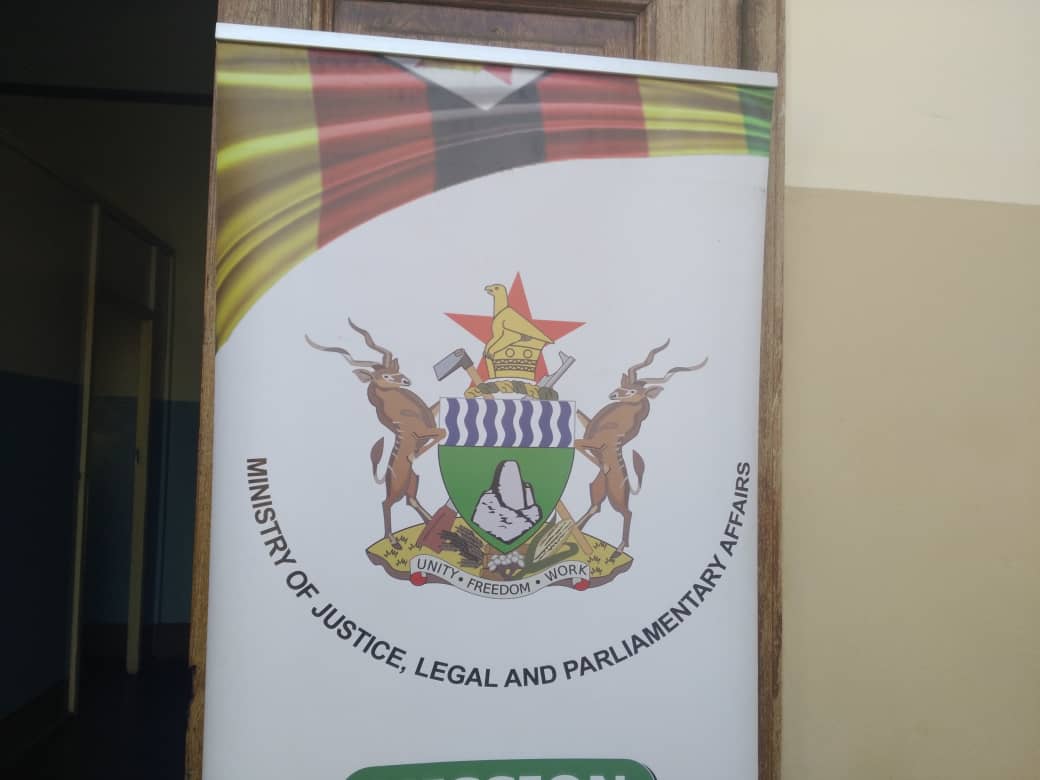PATRICIA MOYO
The Law Development Commission a part of the Ministry of Justice, Legal and Parliamentary Affairs conducted a nationwide Public Affairs Awareness on the Marriage Act (Chapter 5:17).
In Bulawayo the campaign was held at the Small City Hall.
Amid discontentment from some sectors of the society President Emmerson Mnangagwa signed the new Marriages Act (Chapter 5:17), into law last year May.
The new law amends the existing Marriage Act which was under 5:11.
In the new Act an Unregistered Customary Law Relationship is now recognised as a marriage while the same law creates the Civil Partnership as well as qualified Civil Marriage.
The adoption of the Constitution Amendment 99 amendments of 2013 brought some fundamental changes on Section 78 provides for marriage rights.
The Deputy Chairperson of Law Development Commission Mr. Shana said,
“Every person who has attained the age of 18 has a right to find a family. No one is allowed to get into marriage with a person of the same sex.
Therefore if you are below 18 years this means you are not allowed to get married and if you are the same gender (you are not allowed to marry) because marriage is for a man and a woman who are 18 years and above.”
When former President Robert Mugabe was alive,he abhorred gays and lesbians as he referred to them as “worse than pigs and dogs”.
The new Marriage Act has upheld the will of the majority of Zimbabweans and many Christians who have out rightly denounced same sex marriages in the country.
There are now three types of marriages which include Civil Marriage, Registered Customary Marriage, and Unregistered Customary Marriage and there is also Civil Partnership which is not considered as marriage.
Civil Partnership raised a lot of questions and discontentment amongst the married female populace as it was perceived to encourage “small houses”. Even up to now many people disagree with this part of the Act as it is seen to encourage extra-marital affairs.
Previously a spouse in a Civil Marriage was able to sue in the event of infidelity in the marriage, but now this Section of the Law makes it impossible as the other woman or man is considered a partner in such a relationship.
During the same meeting the Director of Law Development Commission Miss Zvakasikwa stated that in Civil Marriage, once a couple is married under this section, one cannot therefore contract into any of the marriages in the Act. This Section if the Marriage Act requires just two consenting adults who are over the age of 18. Lobola is not a requirement.
She continued,
“Even if you get married in church you still have to go and register (the marriage) so that you will be in the system.”
In Registered Customary Marriage there is potentially a polygamous marriage whereby one man can marry many wives and this Section requires payment of lobola as well as registration with the courts of law.
Director Zvakasikwa said,
“This marriage requires payment of lobola and a man marry other women only under customary law, (but) unless if there is still one wife, (the marriage) can upgrade to Civil Marriage.”
There is also the Unregistered Customary Section. This is a polygamous marriage whereby one man with many wives.
Zvikasikwa said that payment of lobola is a defining characteristic of this marriage. According to Customary Law, a man may wed many wives. It should be registered within 3 month. Within their sphere of authority, a Chief may solemnise this Section of the Marriage Act.
The Civil Partnership whereby a man and woman are in a relationship as a couple living together on a genuine domestic basis, and are both over the age of eighteen, have lived together without being married to each other legally.
This partnership is solely acknowledged for the purpose of deciding rights in the event of a breakup and is not, as such, recognized as a marriage.
Zim GBC News©2023


